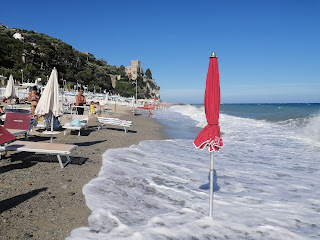No title, just mourning and solidarity

This entire blog is about sustainability, mitigation of climate change, and what can we do to promote our territories and to prevent as much as it is our capacity that extreme events sweep away what we so dearly created. So this morning my first thought was to my fellow European citizens in Belgium, Luxembourg and Germany. It is more than because of my small, marginal, contribution to the debate about sustainability. I lived and worked in Belgium, and I worked on cruises on the River Rhine. Beautiful memories of breathtaking landscapes and wonderful cities... some of them are at the heart of what made our common European identity with their art, history, development. And definitely they mean a lot to me, personally. So I felt compelled to drop just to lines, to stand in solidarity and mourning. #Belgium #Luxembourg #Germany

